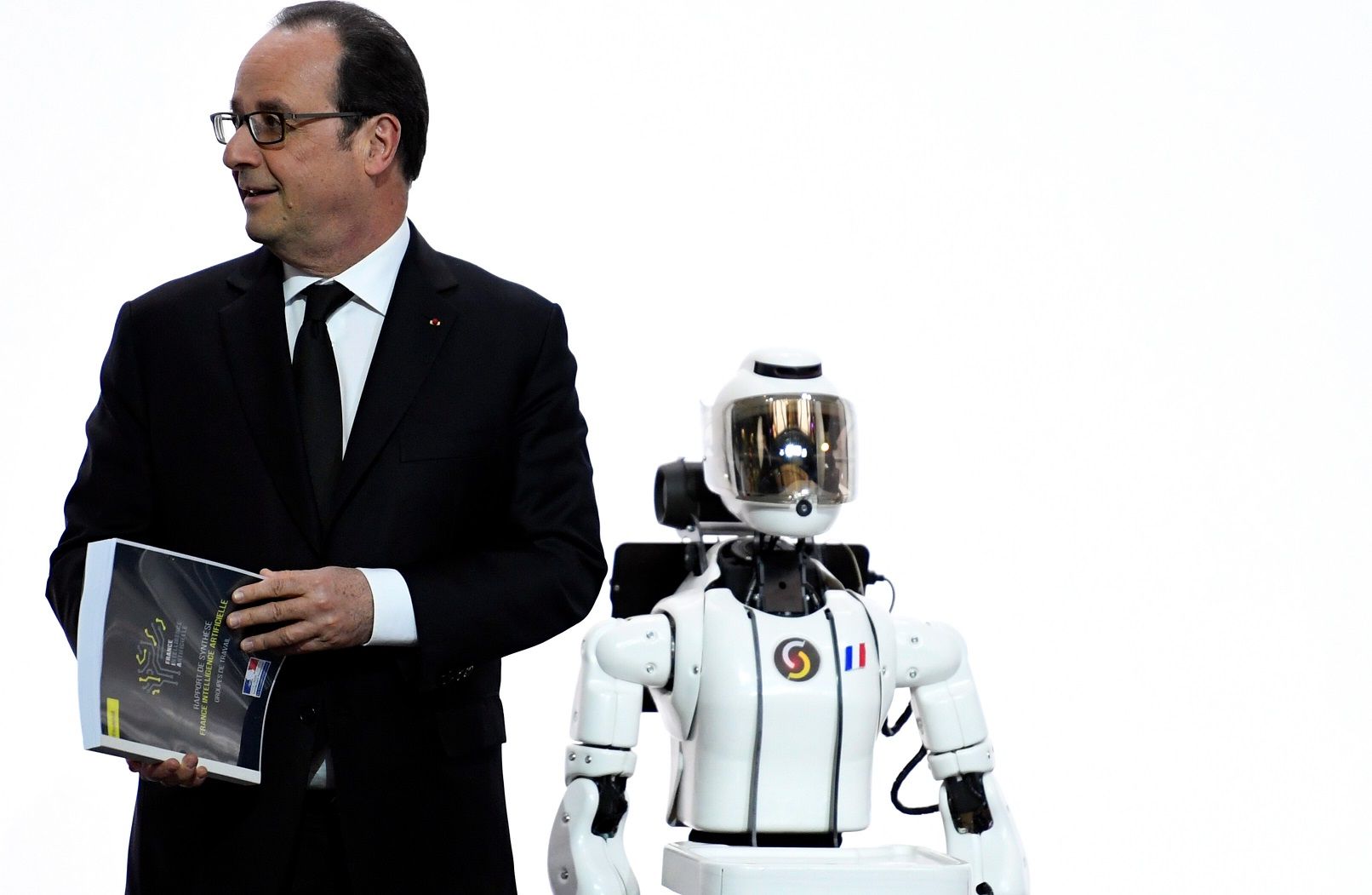
Large swathes of jobs may be threatened by machines in the coming decades, but one domain thought to be relatively immune to automation is politics. A survey of U.K. consumers, however, found just over a quarter think robots would do a better job at running the world than humans.
The research by software firm OpenText found 26 percent of the 2,000 participants surveyed believe artificial intelligence technology would make better decisions than elected government officials. The survey also found that two thirds of people expect to see robots working in government within the next two decades.
"The digital revolution will drive an increasing reliance on self-service technology, machine-to-machine communication and AI, and there is no denying that every job in every industry will be impacted," Mark Bridger, vice president at OpenText, told Computer Business Review.
At a meeting of the American Association for the Advancement of Science (AAAS) last year, experts warned that machines could leave half the world's population unemployed within 30 years.
Taxi drivers face competition from self-driving cars, the jobs of postal workers are under threat from delivery drones, and even sex workers could one day be out of work due to improvements made to "sex robots," computer scientist Moshe Vardi warned.
Technology capable of outperforming humans "at almost any task" could eventually reach into the realm of politics, with Transhumanist politician Zoltan Istvan challenging IBM's Watson supercomputer to a debate in the build up to last year's U.S. presidential elections.
"Historically, one of the big problems with leaders is that they are selfish mammals," Istvan told Newsweek at the time. "An artificial intelligence president could be truly altruistic. It wouldn't be susceptible to lobbyists, special interest groups or personal desires.
"I think in 2020 you will see a field emerge with competing AI robots for president, who want to debate and discuss policy. It's unlikely any of them will be sophisticated enough to take on the job, but I do believe by 2028 robots may be suitable for political office—including the presidency."
Robots considering a run for office would first need to address the qualifications for the presidency as set out in Article II of the U.S. constitution, which states: "No person except a natural-born citizen… shall be eligible to the office of president."
Uncommon Knowledge
Newsweek is committed to challenging conventional wisdom and finding connections in the search for common ground.
Newsweek is committed to challenging conventional wisdom and finding connections in the search for common ground.
About the writer
Anthony Cuthbertson is a staff writer at Newsweek, based in London.
Anthony's awards include Digital Writer of the Year (Online ... Read more
To read how Newsweek uses AI as a newsroom tool, Click here.








